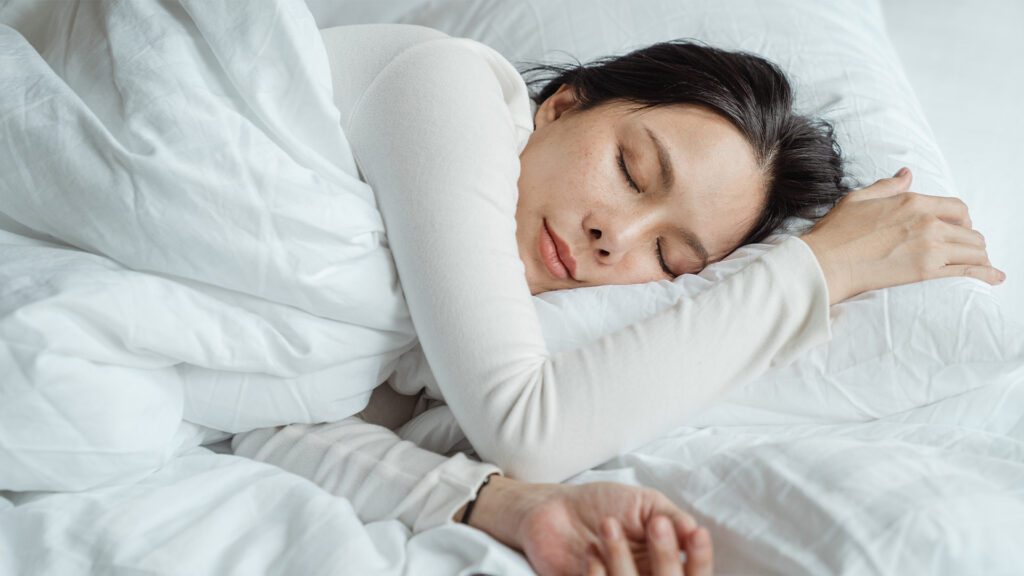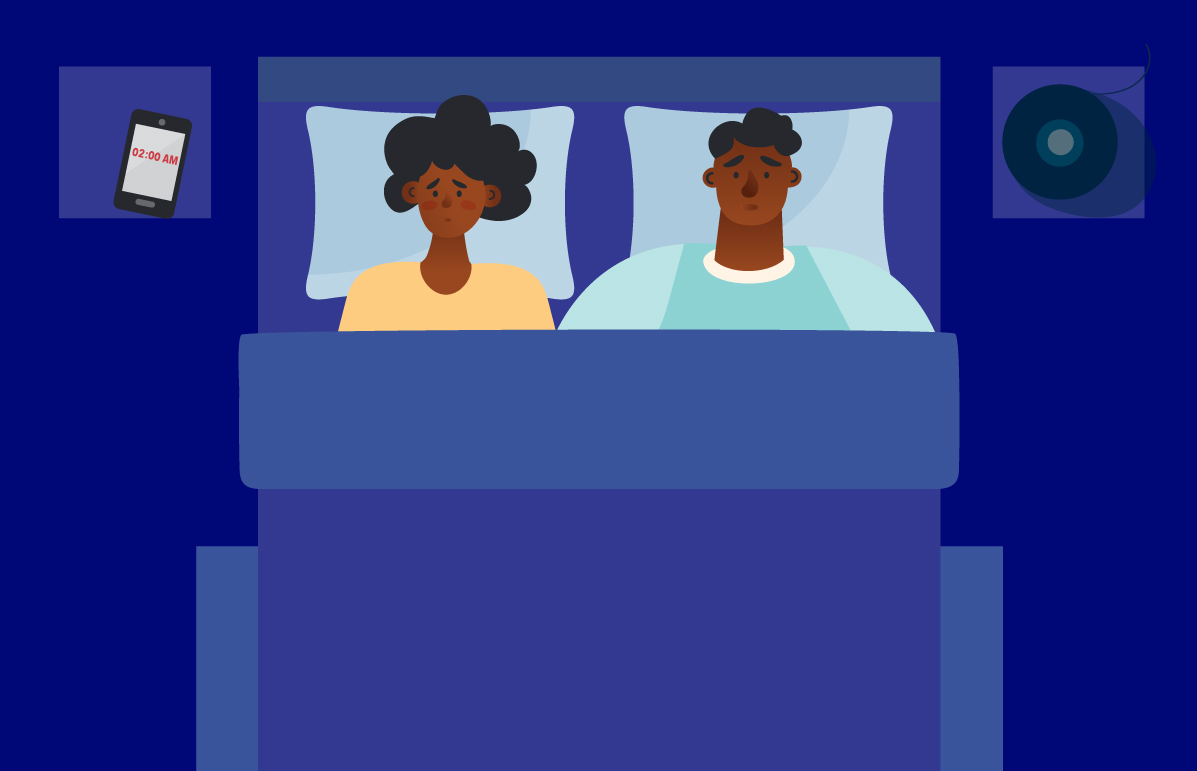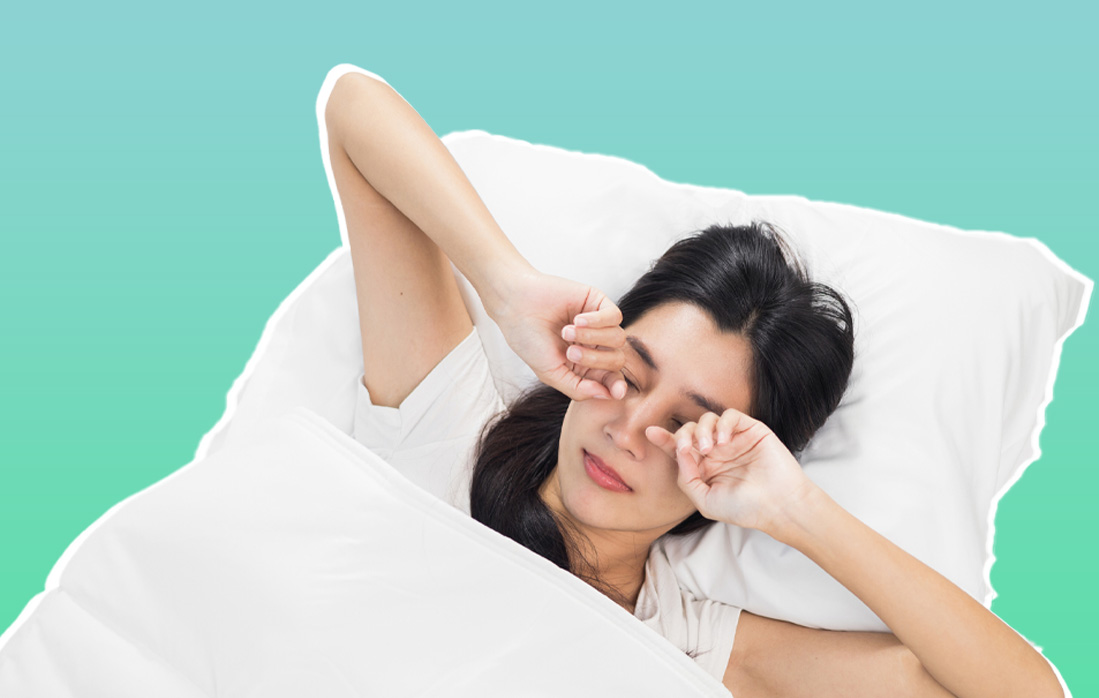
We’ve all heard the old and tired stereotypes about women’s moods around “that time of the month.” While much of what’s said is over-the-top exaggeration, there are legitimate reasons why women’s moods shift and, often, become more negative in the days or week before their period.
A new study looking into how menstrual cycles can affect sleep and emotions in women found that on the days right before and during their period, women felt angrier and had a harder time sleeping through the night. (1) The researchers wanted to investigate the potential underlying reasons behind the decline of emotional functioning and sleep continuity around the menstruation phase of the menstrual cycle.
“By understanding how these factors interact, we can better address the unique needs of women in terms of sleep health and emotional well-being,” says study co-author Dr. Jo Bower of the University of East Anglia’s School of Psychology in a media release.
Since women tend to struggle more with sleep than men and have an increased risk of insomnia, getting to the bottom of potential hormonal issues can help women and their care providers understand and treat underlying causes for better sleep, health, and wellbeing.
The Study
The research at the University of East Anglia involved 51 women aged 18 to 35 who kept track of their sleep and emotions during two menstrual cycles. Researchers found that women stayed awake for about 8 to 16 minutes longer than usual during this time.
In the days leading up to and during their period (perimenstrual phase), the women had significant disruptions in their sleep, including more time awake at night and a lower overall sleep efficiency.
Also, when women had more trouble sleeping during this phase, they felt increased anger compared to other phases of their cycle and were less happy, calm, enthusiastic, and positive. This suggests that being extra cranky and sleeping poorly before and during a period are closely linked.
How Menstruation Impacts Sleep
Previous research has shown that sleep can change a lot during the menstrual cycle, especially in the luteal phase, which is the time after ovulation and before the period starts. During this phase, it’s typically more difficult to fall asleep — you wake up more often during the night and generally have worse sleep quality and less of the deep, dreamy sleep (REM sleep).
Shifts in hormone levels 4-5 days before the period play a significant role in sleep, according to Dr. Dawn Ericsson, a Board-Certified Obstetrician/Gynecologist and Medical Director of Age Rejuvenation Clinics. In the days after ovulation, estrogen and progesterone levels start to fall dramatically, which is the culprit for the sudden changes in emotional and physical wellbeing.
“The normal rise and fall in estrogen and progesterone affect sleep patterns and emotions—progesterone has a calming effect on the brain, and deficiency can result in sleep difficulties, mood swings, anxiety, or depression,” she explains. Feeling depressed, angry, anxious, or irritable can disrupt your rest, adds Dr. Ericsson.
Estrogen, for instance, promotes REM sleep, which is crucial for cognitive function and emotional regulation, according to Dr. Bobban Subhadra, CEO of Biom Pharmaceutical. It also helps regulate the production of serotonin, a neurotransmitter that contributes to feelings of well-being and relaxation.
On the other hand, progesterone has a calming effect on the brain and promotes deep, restorative sleep. “Deficiency can result in sleep difficulties, mood swings, anxiety, or depression,” adds Dr. Ericsson. Shifting levels of these two hormones can disrupt the normal sleep-wake cycle and lead to difficulties falling asleep or staying asleep.
Of course, the physical symptoms experienced by nearly all women to some degree during periods, like pelvic cramping, bloating, headaches, and breast tenderness, can keep you awake due to discomfort. Body temperature also goes up during this phase, which tends to make sleep worse.
And if you’re one of the 40-60 percent of women with PMS, you might have more bad dreams, wake up more at night, feel more tired in the morning, have trouble shutting off your brain for sleep, and be more likely to suffer from insomnia and migraines in the days before your period and feel sleepier during the day as a result than women who don’t have PMS.
Interconnection Between Sleep, Mood, and Hormones
Missing sleep clearly contributes to worse moods in everyone, but there’s another layer for women. “Changes in hormones during a woman’s menstrual cycle can impact neurotransmitters in the brain, such as serotonin and dopamine, which regulate mood and emotions,” explains Dr. Subhadra.
Specifically, the withdrawal of progesterone and changes in estrogen during the days before your period can also lower serotonin levels in the bloodstream, according to Dr. Ericsson. “The drop in serotonin, our happy hormone, can lead to mood swings and intense emotions like anger,” she explains.
Helpful Tips for Perimenstrual Mood Swings and Sleep Issues
Improving sleep during the perimenstrual phase might help manage mood swings, especially if you are prone to mood-related health issues. Likewise, becoming aware of how your hormones impact your mood and sleep can empower you to adjust your lifestyle habits and support your wellbeing.
Dr. Ericsson stresses the value of simple lifestyle tweaks that can have a powerful impact on your sleep quality. “Keep a regular sleep regimen with set sleeping and waking times, adequate exposure to sunlight, regular exercise, low stress, adequate hydration, proper nutrition, avoiding processed, sugary foods, minimizing toxin exposure, and maintaining adequate vitamin and nutrient supplementation,” she says.
Dr. Ericsson recommends foods high in vitamin B6, zinc, and magnesium. These nutrients are especially nourishing to the ovaries, the primary factories for producing estrogen and progesterone.
Dr. Bobban says having a better understanding of the complex relationship between hormonal fluctuations, neurotransmitter levels, and emotional responses during the menstrual cycle can help women develop strategies to support their emotional wellbeing and improve sleep quality.
He suggests trying natural remedies like soothing herbs or essential oils, keeping a consistent sleep schedule, creating a calming bedtime routine, and creating a comfortable sleep environment. He says that engaging in stress-relieving practices like mindfulness, meditation, or gentle exercise can also benefit relaxation.

How Sleep Disorders Affect Men And Women Differently

Research Reveals the Three Most Popular Sleep Supplements, Which May Surprise You

When It Comes to Life Span, Insomnia Affects Men and Women Differently

Hotel Turndown Service Cured My Sleep Issues, So Now I Recreate It at Home
Sources
1. Meers, J. M., Bower, J., Nowakowski, S., & Alfano, C. (2024). Interaction of sleep and emotion across the menstrual cycle. Journal of Sleep Research, e14185. https://doi.org/10.1111/jsr.14185
Ericsson, Dawn. Author interview. March 2024.
Subhadra, Bobban. Author interview. March 2024.



























